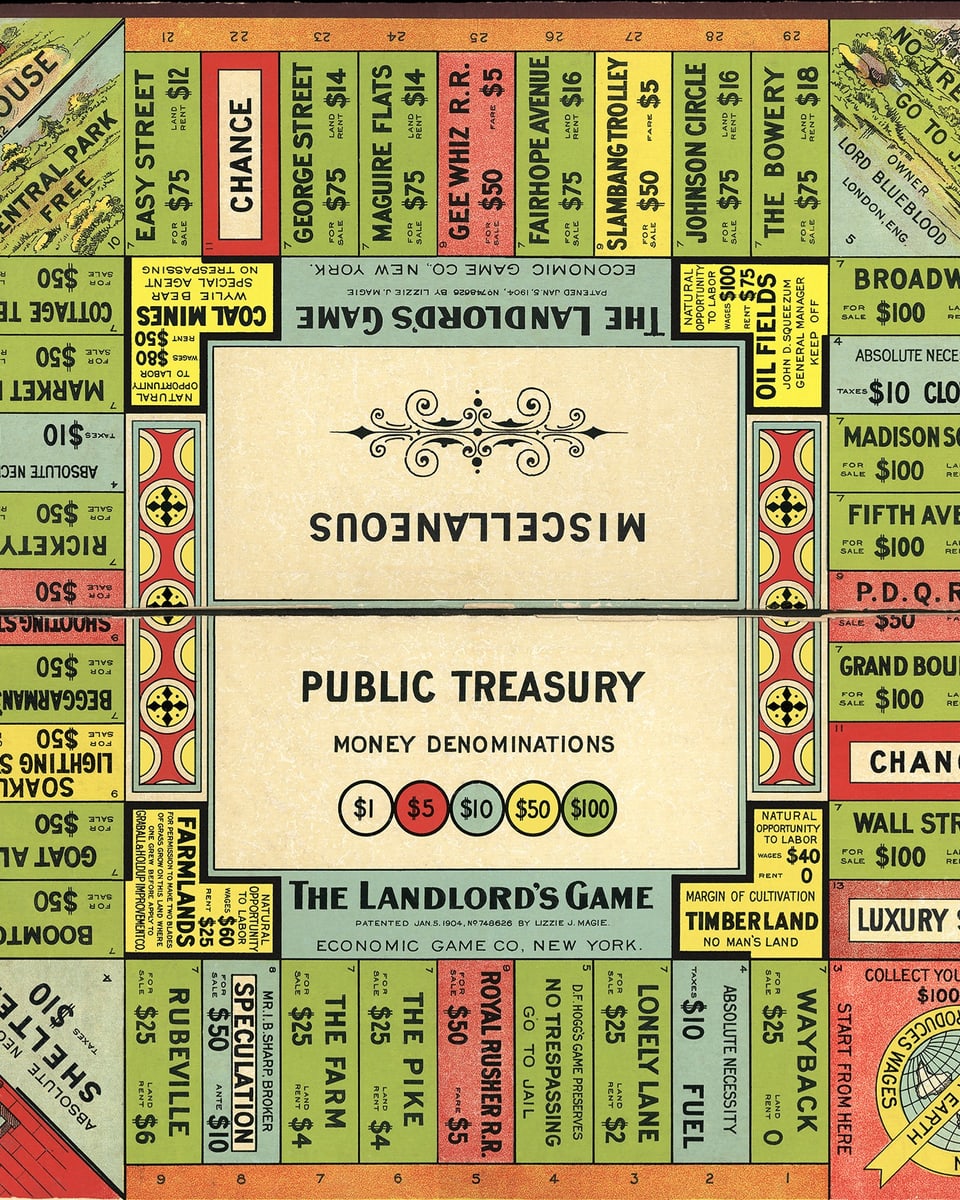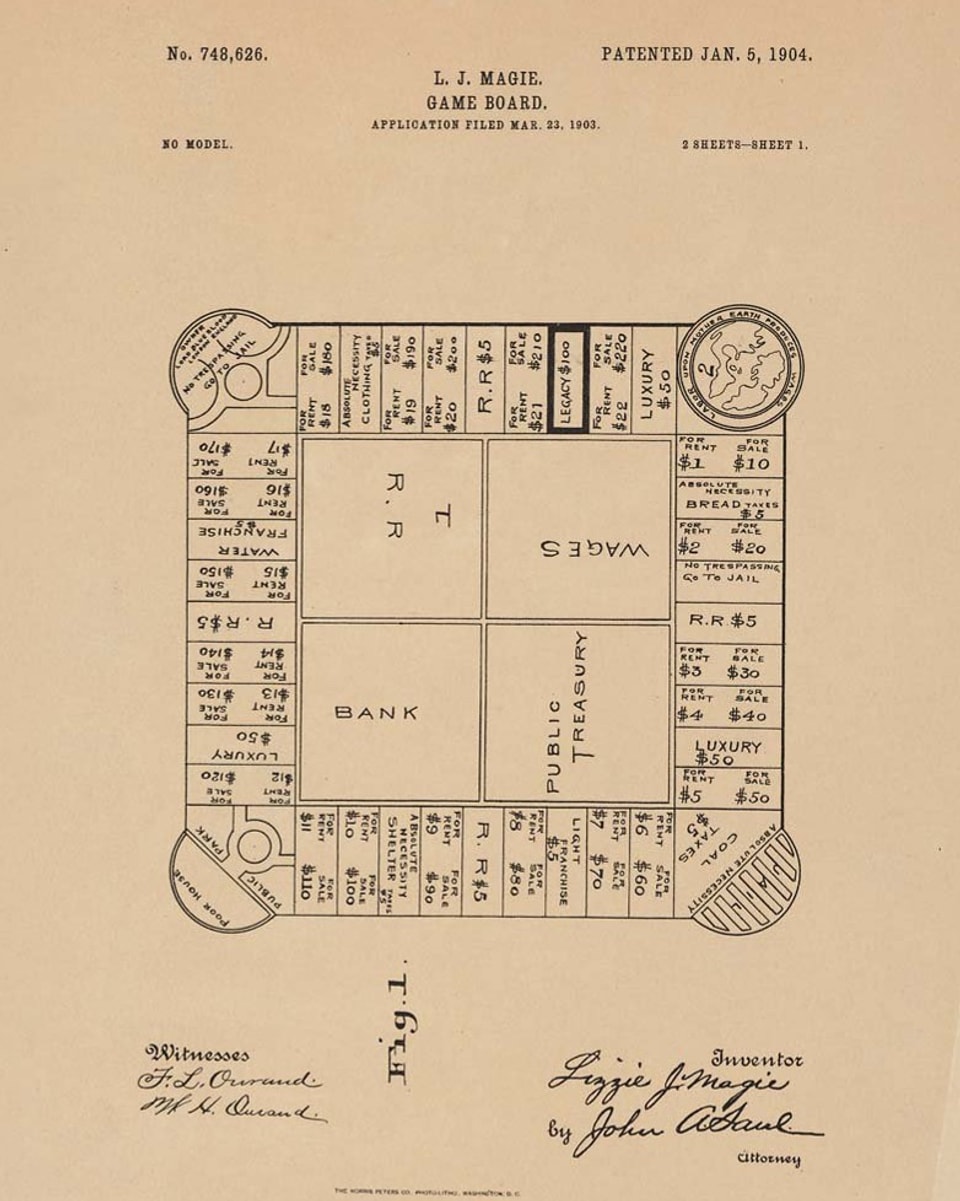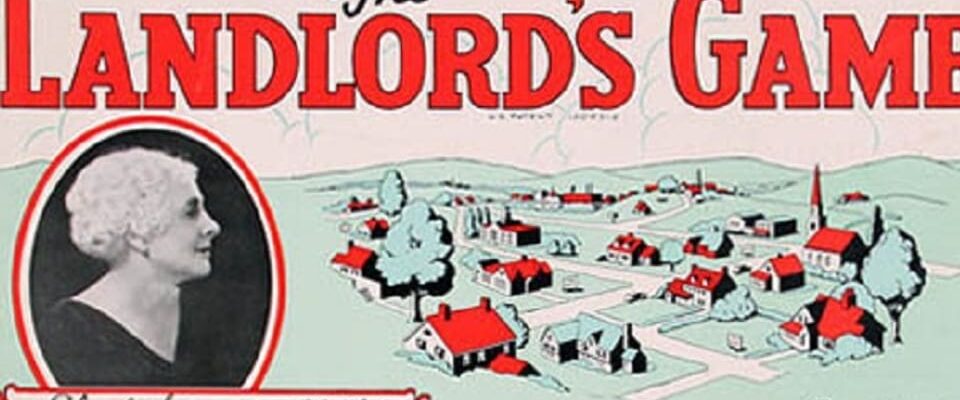Contents
When Elizabeth Magie Phillips invented the board game, she wanted to promote understanding of social injustice. It was not in their intention that the rules of the game were completely reversed. She left the field as a loser.
Elizabeth “Lizzie” Magie Phillips was an unusual woman for her time: she not only worked as a stenographer at the post office, appeared in the theater in the evenings and wrote short stories. Above all, she had a political mission: As a supporter of the economist Henry George, she wanted to make his economic policy ideas understandable to a broad section of the population.
The educational idea behind Monopoly
The Georgists were convinced that land should belong to the public as a natural resource, like air or water, and that the value of privately owned land should therefore flow back to society. They viewed land ownership and monopolies as causes of poverty.
Legend:
In its first version, the game by inventor Elizabeth Magie Phillips was called “The Landlord’s Game”.
Wikimedia/Public Domain
To spread this idea, Phillips thought a board game would be helpful. Board games were extremely popular among the middle class at the beginning of the 20th century.
I hope that men and women will quickly understand that their poverty comes from the fact that Carnegie and Rockefeller have more money than they can spend.
She called her game “The Landlords Game” (German: “The Landowners’ Game”). It was more complicated than today’s Monopoly. The game could be played in various variations.

Legend:
An early version of the “Landlord’s Game” from 1906.
Wikimedia/Public Domain
In Phillip’s preferred version, wealth was redistributed. She hoped for the educational effect. “I hope that men and women will quickly understand that their poverty comes from the fact that Carnegie and Rockefeller have more money than they can spend,” she is reported to have said. Carnegie and Rockefeller were among the richest men at the time.
The industrialist John D. Rockefeller laid the foundation stone of today’s US oil company ExxonMobil in 1870. Rockefeller was considered brutal and merciless when it came to outdoing the competition. Andrew Carnegie worked his way up from a poor background to become a steel entrepreneur. However, he used his wealth to endow numerous foundations, founded libraries and supported research and education.
In Phillips’ eyes, however, both entrepreneurs embodied the capitalist system that she criticized and to which she opposed other values.
From the critique of capitalism to “The Winner Takes It All”
In 1903, Phillips filed a patent for the board game – also a rarity for a woman at the time. Developing ideas and filing patents was a male domain. Years later, she sold the patent to unemployed salesman Charles Darrow, who paid her $500 for it (around $11,000 today). He later sold the game to a publisher for $7,000. Today that would be almost 155,000 dollars (135,000 Swiss francs).

Legend:
The original patent sheet from 1904.
IMAGO / Pond5 Images
The game became a box office hit, albeit in a very simplified form. The rule: The winner is the last person left with their possessions. Phillip’s original thought was reversed. Darrow benefited from the game’s financial success through royalties, while Phillips came away empty-handed.
Not only did the game’s criticism of capitalism fall by the wayside, Phillips herself was not recognized as the game’s inventor for a long time. She fought for fame throughout her life.
